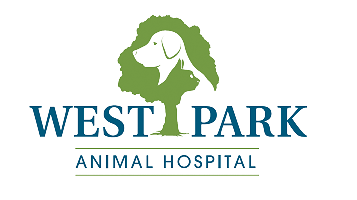 The image of a fluffy barn cat lapping from a bucket next to a big Holstein cow is an iconic one for sure. While many of us search our refrigerators for a gallon of milk as a treat for our feline friends, cats and milk actually aren’t a good combination. West Park Animal Hospital wants all our cat loving readers to know more about this common misconception.
The image of a fluffy barn cat lapping from a bucket next to a big Holstein cow is an iconic one for sure. While many of us search our refrigerators for a gallon of milk as a treat for our feline friends, cats and milk actually aren’t a good combination. West Park Animal Hospital wants all our cat loving readers to know more about this common misconception.
Why Cats and Milk Don’t Mix
Cats are known to gravitate toward rich, fatty flavors. Milk (full fat milk and cream in particular) is no exception.
There are two main reasons owners should limit dairy intake for our pets:
Lactose — Just like some humans, cats lack the enzyme required to break down lactose. Feeding milk to pets that are lactose intolerant can result in painful abdominal cramping, bloating, and diarrhea. While most cats are able to tolerate small amounts reasonably well, feeding milk in larger amounts or too frequently can result in serious digestive upset.
Calories — The majority of U.S. house cats are overweight or obese, and we can’t turn a blind eye to the fact that milk (even non-cow milk) contains calories your pet likely doesn’t need. Cow’s milk contains no nutritional value to a feline who’s already receiving a balanced diet. Even skim milk contains about 80 calories per cup, which is nearly ¼ of your cat’s daily recommended intake.
Treats should make up a small percentage (< 6%) of your pet’s daily caloric intake. While a tablespoon of milk or a similar option, such as Cat-Sip, is okay in moderation, large amounts aren’t necessary and can actually be harmful.
What About Kittens?
Of course, kittens, like all mammals, need milk to survive. However, if you find yourself raising an abandoned kitten and need to bottle feed, avoid reaching for cow’s milk.
Up until about 8 weeks of age, kittens have adequate supplies of lactase, making lactose intolerance less of an issue. You want to be sure, however, that your kitten receives a nutritionally balanced milk.
Of course, milk from a cat would be best, but when that’s not available, a commercially prepared kitten formula, such as KMR, is ideal.
Proactive pet owners know that feeding their cat the right diet is the best way to promote good health and to prevent disease. For the most part, try to avoid giving your cat any milk. As always, please let us know if you need help formulating a healthy diet plan for your pet.
The post Cats and Milk: A Natural Match or Not a Good Idea? appeared first on West Park Animal Hospital Blog.

